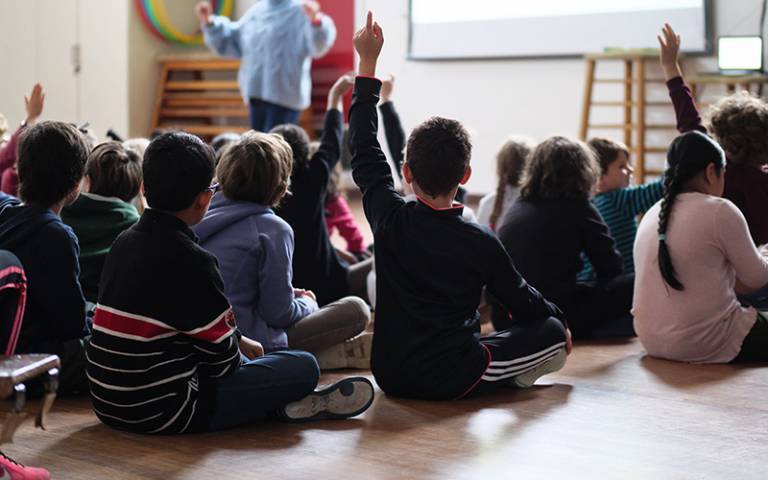Covid crisis reveals how schools are ‘propping up a failing welfare state’
14 October 2021
The pandemic has shown the extent to which families rely on schools for ‘basic needs’ such as access to an adequate supply of food and help in accessing other support services, highlights new UCL research.

The briefing report, published today, includes in-depth interviews from 50 parents and staff across seven schools around England and found that schools serving populations with high levels of poverty shouldered a significantly higher burden in addressing problems relating to food insecurity and housing.
The schools were located in parts of the country that had experienced higher or lower prevalence of Covid from March 2020 to March 2021 and varied in the number of pupils on Free School Meals (FSM) in relation to the national average.
Due to pressures linked to the pandemic, the research found that more families turned to schools as an important source of support. Among the issues schools reported dealing with included: children in need of food and clothing; families living in inadequate housing with inadequate space and resources to maintain learning at home; families with limited digital connectivity; individual pupils facing mental health crises and children experiencing difficult domestic circumstances, including domestic violence.
Co-author, Professor Gemma Moss (UCL Institute of Education) said: “We know Covid-19 has directly and indirectly affected schools and families in very different ways. Communities where children were already living in poverty but also those where families suddenly faced new financial distress due to COVID have been very badly hit.
“Funding offered through Pupil Premium does not cover or adequately reflect the work schools do to support children living in poverty or struggling with difficult issues at home. That families are so reliant on schools highlights fundamental weaknesses in our current welfare system that urgently need repair.”
Addressing food insecurity was the most immediate priority for all the schools in the study and schools went to considerable lengths to ensure that all their pupils received at least one meal a day, in some cases distributing food directly from the school to the door.
One headteacher said: “What we’ve noticed over time was that the people who were coming to our food pantry, and we still run it now, weren’t the free school meal parents. […] It was this tier just above, the people who’d been furloughed, the people who had always had a job.”
Schools also raised concerns about children living in sub-standard housing which was wholly unsuitable for learning. Another headteacher said: “[They] lived in a flat, which was temporary accommodation, that was infested with rats. And holding all of that was really, really tough because she was in danger and so were her children - and living with rats. I mean, it was just awful.”
Co-author Professor Alice Bradbury (UCL Institute of Education) added: “Our research shows that the lack of services that support children, particularly Child and Adolescent Mental Health Services (CAMHS) and emergency housing for domestic violence cases, puts schools in the position of first responder, coping with families facing complex challenges.
“Schools are picking up the pieces from a welfare and social services system that no longer provides a real safety net for families. For those schools, the impacts of poverty on children’s lives are impossible to ignore.”
The authors say policy funding for education needs to focus on building system resilience over the longer term and that the current settlement on offer is not enough to fix the many issues the school system in England faces and which COVID has so sharply revealed.
The Learning through Disruption research project ran between May-August 2021, with funding from the Economic and Social Research Council.
Links
- Professor Gemma Moss’s academic profile
- Dr Alice Bradbury’s academic profile
- UCL Institute of Education
- Full paper
Image
Phil Meech/UCL Insitute of Education
Media contact
Rowan Walker
Tel: +44 (0) 203 108 8515
Email: rowan.walker [at] ucl.ac.uk
 Close
Close

